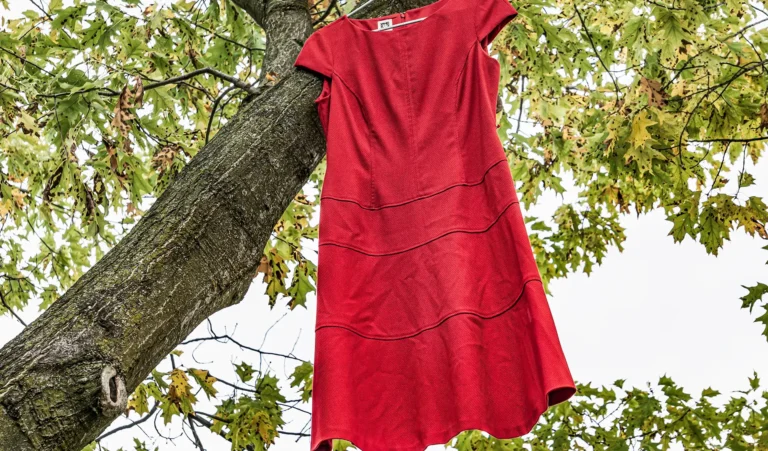Equity and Justice
LFMO researches and advocates for improving Métis women and 2SLGBTQQIA+ folks’ experiences within both community safety and the justice systems.
MMIWG2S+
On behalf of and through confirmation of the Métis Nation Governing members, LFMO is the file lead on Missing and Murdered Indigenous women, girls and 2SLGBTQQIA+ people, on behalf of the Métis Nation.
LFMO has prioritized Missing and Murdered Indigenous women, girls and 2SLGBTQQIA+. We have been actively involved since before the National Inquiry and we continue today to ensure that the calls for justice and the 62 calls to Miskotahâ are implemented.
2SLGBTQQIA+
Through allyship and advocacy LFMO is committed to uplifting the voices of our 2SLGBTQQIA+ kin. LFMO has supported the development and work of the National Two Spirit Métis Committee who are addressing systemic issues such as Gender and Orientation Based Violence and more.
Strategic Priorities
For many Métis women and gender-diverse folks, the circumstances leading to their involvement in the justice system is the result of a complex set of collective and individual life circumstances, marked by systemic discrimination, violence, and poverty.
Métis women are often not recognized as Indigenous by many service providers. This lack of identity data collection has impacted the way that government departments, service providers, municipal and provincial police and the RCMP understand the circumstances of Métis women and girls. It has led to their discriminatory practices and treatment of them. Métis women also often do not have access to culturally safe supports when accessing pan-Indigenous programs which can be additionally traumatizing.
Education, partnerships and culturally relevant supports at all intersecting points of the justice system are needed.
LFMO calls for disaggregated data and Métis-specific research on those who are involved in both the justice systems and community safety, as well as community stakeholders to co-create solutions to reduce the systemic barriers that Métis women and girls face.


Actions
In response to the National Inquiry into Missing and Murdered Indigenous Women and Girls publication of Reclaiming Power and Place: The Final Report of the National Inquiry into Missing and Murdered Indigenous Women and Girls, which contains 231 Calls for Justice, and includes priorities for confronting the persistent and deliberate human and Indigenous rights violations and abuses fuelling Canada’s staggering rates of violence against Indigenous women, girls and 2SLGBTQQIA+ people, and the 29 Métis-specific Calls for Justice, LFMO released its own report, entitled: Métis Perspectives of Missing and Murdered Indigenous Women, Girls, and LGBTQ2S+ People which includes 62 Calls for Change or Miskotahâ (pronounced “Mis-KO-ta-ha”).
Based on engagement opportunities, community feedback, advice from Métis subject matter experts, and most importantly, with input from Métis families and survivors, the 62 Calls for Miskotahâ were developed with the objective of operationalizing tangible actions that would effect meaningful, long-term change with respect to Métis MMIWG.
In fall 2019, federal work began on developing a National Action Plan on Missing and Murdered Indigenous Women, Girls and 2SLGBTQQIA+ People. LFMO was invited to provide input from a distinctions-based Métis perspective on an Implementation Framework that would form part of the National Action Plan.
Between autumn 2019 and summer 2021, despite the pandemic, LFMO engaged over 300 Métis leaders and community members across the Motherland on this issue, including Governing Members, Grandmothers, Elders, Knowledge Keepers, youth, 2SLGBTQQIA+ people, Métis frontline workers and service providers.
On June 3, 2021, Canada released a National Action Plan focusing on the findings of the National Inquiry and the 62 Calls for Miskotahâ, and examining the root causes and forms of oppression which have contributed to the targeted, violent victimization of Indigenous women, girls, and 2SLGBTQQIA+ people.
As part of, and in response to the National Action Plan and process, LFMO released its Métis-specific Action Plan. This report, Weaving Miskotahâ, serves as the Métis Nation’s Implementation Framework for the National Inquiry Final Report’s Calls for Justice and the 62 Calls for Miskotahâ.
Weaving Miskotahâ highlights the Métis-led work already underway in response to the National Inquiry’s Calls for Justice and the Métis Nation’s Calls for Change, and outlines progress and outcomes achieved to date.













